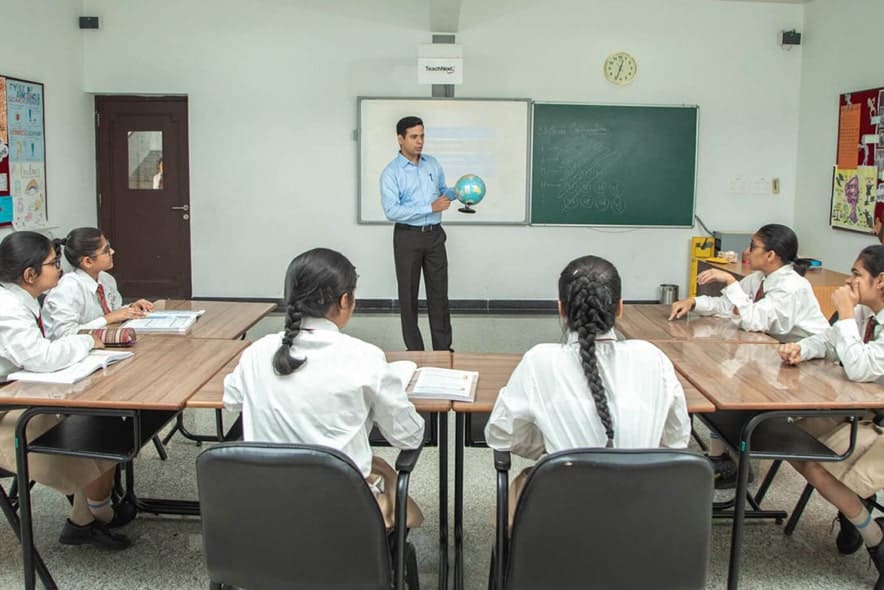Curious about how the G-20 impacts education in India? Dive into an in-depth exploration of this topic in the following blog.
Stay informed about the significant impact of G-20 decisions on education in India as you delve deeper into this exploration.
What is the G20 Summit?
You might be wondering, what exactly is the G20 Summit and how does it impact education in India?
The G20 Summit is an annual meeting of leaders from the world’s largest economies to discuss global economic issues. While the G20 primarily focuses on economic matters, its decisions and policies can have a significant impact on education in India.
The G20 plays a crucial role in shaping global economic policies that can affect funding for education, access to resources, and educational reforms in India. By influencing economic growth and development, the G20 indirectly impacts the education sector in India, as economic stability and prosperity are essential for promoting quality education and ensuring equal opportunities for all students.

Why is G20 important for education?
The G20 is crucial for fostering global cooperation and driving progress in educational initiatives. As one of the largest economies in the world, India stands to benefit significantly from its participation in the G20.
By being part of this influential group, India has the opportunity to collaborate with other member countries on key education-related issues such as policy development, innovation, and funding.
The G20 provides a platform for India to share best practices, learn from global experiences, and access resources that can help improve the quality of education in the country.
Additionally, being part of the G20 allows India to contribute to shaping the global education agenda and advocating for policies that align with its national priorities.
Read More: Reasons Why You Should Send Your Daughters To Boarding School
What is the G20 Education Agenda?
Let’s dive into what’s on the agenda for education in the G20!
The G20 education agenda focuses on key issues such as inclusive education, digital literacy, skills development, and reducing the education gap between different socio-economic groups. One of the main goals is to ensure that all individuals have access to quality education that prepares them for the challenges of the 21st century.
This includes promoting lifelong learning, fostering innovation in education, and enhancing teacher training programs. The G20 also emphasizes the importance of education in achieving sustainable development goals and building a more inclusive and equitable society.
By addressing these priorities, the G20 aims to create a more educated and skilled global workforce that can drive economic growth and prosperity.
How G-20 Affects Education System in India
When considering how the G-20 affects the education system in India, it is important to look at key points such as human capital development, inclusivity, and social equity.
By focusing on human capital development, India can work towards building a skilled workforce that can compete in the global economy.
Inclusivity and social equity ensure that education reaches all segments of society, while innovation and research drive progress and excellence in education.
Human Capital Development: Human capital development is vital for India’s global success. As a G-20 member, India prioritizes investing in education and skill enhancement to boost workforce quality and productivity. Collaboration within the G-20 fosters knowledge sharing. Skill programs and education reforms aim to create a competitive workforce for sustainable economic growth.
Inclusivity and Social Equity: Promoting inclusivity in education is vital for a fair society. The G-20 influences policies to ensure equal access, especially for marginalized groups like girls and low-income families in India. Targeted efforts can bridge gaps and provide quality education opportunities for all, fostering social equity.
Innovation and Research: The G-20 drives innovation and research in Indian education through international collaboration. By sharing best practices, resources, and fostering partnerships, it encourages groundbreaking advancements in educational approaches and technologies. Prioritizing innovation ensures India remains globally competitive in education, benefiting both students and educators.
Global Diplomacy and Soft Power:The G-20 leverages global diplomacy and soft power to shape India’s educational future. Through diplomatic discussions and collaborations, member countries influence policies impacting education worldwide. Cultural exchanges and partnerships introduce innovative practices, enriching India’s educational landscape and providing students with global opportunities. This fosters an interconnected and prosperous education sector in India.
Read More: Importance Of A Well-Rounded Education In Boarding Schools
Initiatives taken by India within the G-20 for Education
In India, various initiatives have been taken within the G-20 2023 framework to enhance education. Programs like Skill India and Digital India aim to upskill the workforce and promote digital literacy.
Partnerships with G-20 nations have facilitated knowledge exchange and collaboration in education. Additionally, initiatives like Atal Tinkering Labs and the Global Skill Convergence Summit have further advanced India’s efforts in fostering innovation and enhancing skills development.
Skill India: G-20 policies directly enhance vocational training and job prospects in India through Skill India, offering skill development programs to millions of youth. Partnerships with G-20 nations bolster India’s vocational training infrastructure, aligning initiatives with global standards, promoting entrepreneurship, and fostering a competitive workforce.
Digital India: Digital India transforms India into a digitally empowered society via technology. It ensures access to digital services for all citizens, promoting e-governance, digital literacy, and digital payment systems. Bridging the digital divide, Digital India revolutionizes education, offering equal opportunities and enhancing learning prospects.
Partnerships with G-20 Nations: Collaborating with G-20 nations fosters a global network for educational innovation. Knowledge exchange, research projects, and best practice sharing improve education quality nationwide. Leveraging expertise and resources from countries like the United States and Germany bridges educational gaps, preparing youth for the future effectively.
Atal Tinkering Labs: Atal Tinkering Labs, established through G-20 partnerships, nurture student creativity and innovation. These labs offer hands-on learning, encouraging critical thinking and problem-solving. Partnering with G-20 nations enhances India’s education system, promoting STEM education, and empowering youth for global leadership in innovation.
Global Skill Convergence Summit: Participate in the Global Skill Convergence Summit to expand knowledge and network with industry experts. Aligned with G-20 initiatives, the summit bridges education and industry needs, offering insights into global workforce trends. Workshops, discussions, and networking opportunities enhance skills and career prospects for attendees.
Conclusion
Heritage Girls School Udaipur, a cornerstone of India’s educational landscape, aligns with the nation’s educational commitments within the G-20 framework. It epitomizes the crucial role of quality education in driving economic growth and social progress.
Through fostering excellence and innovation in boarding school education, Heritage Girls School contributes to India’s vision of equipping citizens with skills for global success. Its dedication to high-quality education mirrors India’s steadfast commitment, showcasing progress within the G-20 framework. Together, they signify education’s transformative power in shaping a brighter future.


